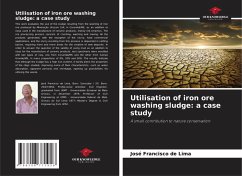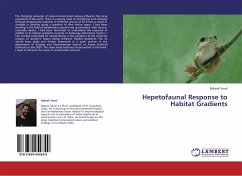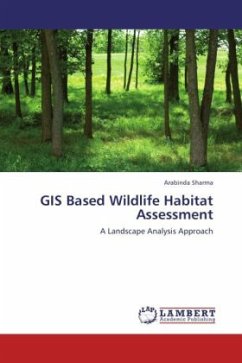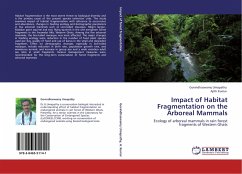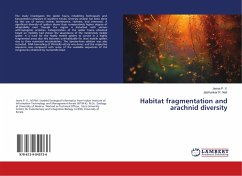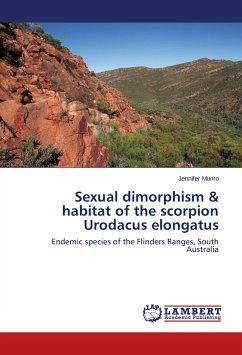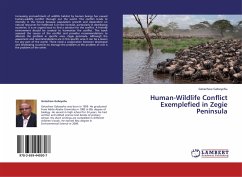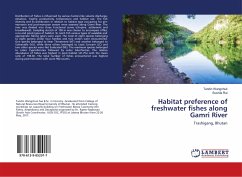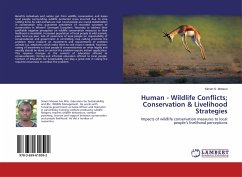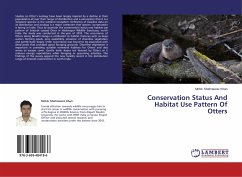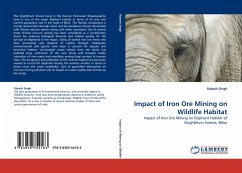
Impact of Iron Ore Mining on Wildlife Habitat
Impact of Iron Ore Mining on Elephant Habitat of Singhbhum Forests, Bihar
Versandkostenfrei!
Versandfertig in 6-10 Tagen
45,99 €
inkl. MwSt.

PAYBACK Punkte
23 °P sammeln!
The Singhbhum forests lying in the Deccan Peninsular Biogeographic Zone is one of the major elephant habitat in terms of its area and current population size in the state of Bihar. The floristic component is mostly represented through moist and dry deciduous forests dominated with Shorea robusta species along with other associates. Out of several biotic threats iron-ore mining has been considered as a contributory factor for reducing biological diversity and habitat quality for the survival of elephants in the region. Siting of several iron ore mines and their processing and disposal of wastes...
The Singhbhum forests lying in the Deccan Peninsular Biogeographic Zone is one of the major elephant habitat in terms of its area and current population size in the state of Bihar. The floristic component is mostly represented through moist and dry deciduous forests dominated with Shorea robusta species along with other associates. Out of several biotic threats iron-ore mining has been considered as a contributory factor for reducing biological diversity and habitat quality for the survival of elephants in the region. Siting of several iron ore mines and their processing and disposal of wastes through inadequate environmental safe guards have been a concern for aquatic and terrestrial habitat. Unmanaged waste release from the mines has polluted long catchment of the river Koina and brought visible coloration of river water and moralities among large number of riverine trees. The occupancy and utilization of this riverine habitat has also been viewed as crucial for elephants during the summer months in terms of dense cover and water availability. Lack of quantified information on iron-ore mining pollution and its impact on water quality lead to take up this study



